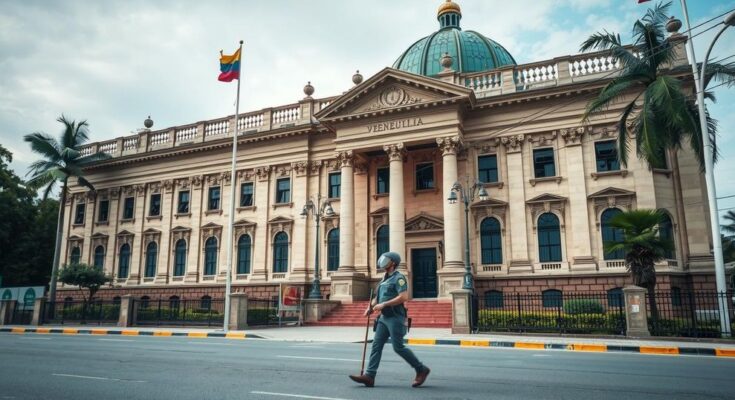Venezuela’s government reiterated plans to arrest opposition leader Juan González, who claims victory over Maduro in last year’s elections. González, now in exile in Spain, intends to return and assume the presidency despite legal threats from ruling officials. The political tension highlights the intensifying conflict over electoral legitimacy in Venezuela.
The Venezuelan government reaffirmed its intention to arrest opposition leader Juan González, who claimed to have triumphed over President Nicolás Maduro in last year’s elections. Following a judge’s warrant related to election disputes, González fled to Spain in September but has expressed a desire to return and assume what he believes is his rightful presidential position. Notably, ruling party officials, such as new National Assembly president Jorge Rodriguez, have publicly threatened legal action against González should he set foot in Venezuela, declaring that such a move would merit immediate arrest.
The political climate in Venezuela remains contentious, characterized by accusations of electoral fraud and human rights abuses. President Nicolás Maduro, facing widespread accusations of illegitimacy from the international community, particularly the U.S. and European governments, continues to hold power with the backing of state institutions. The recent elections have been marred by allegations of irregularities, and while the regime has confirmed Maduro’s victory, the opposition, represented by González, insists that the results were manipulated and that he is the rightful winner of the presidential race.
The Venezuelan government’s persistent threats against opposition leader Juan González reflect the ongoing struggle for political power in the country. Despite the implications of international support for González’s claims, Maduro’s regime remains firm in its stance, vowing to use legal measures to thwart any potential return by González. The situation underscores the deepening rift within Venezuelan politics and the challenges faced by the opposition in their quest for recognition and legitimacy.
Original Source: www.washingtonpost.com




